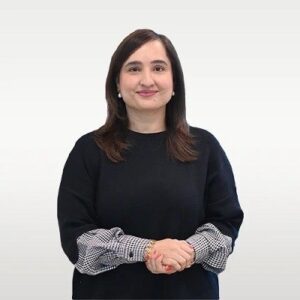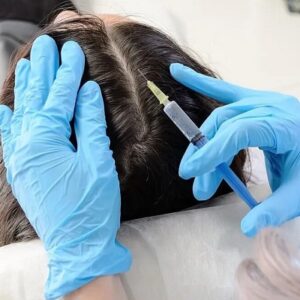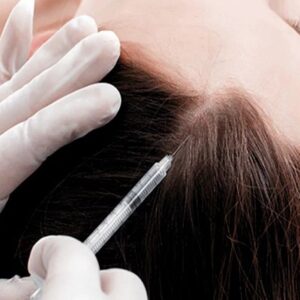
Why choose Dynamic Clinic PK?
- Best Hair specialist.
- Best hair loss treatment.
- Affordable price.
- 15% off on MBF cards.
- Premium location in main F7 markaz.
- Free consultation.
Are you sick of coping with hair loss, receding hairlines, or thinning hair?
Exosome hair therapy in Islamabad may be the breakthrough you’ve been looking for!”
This cutting-edge regeneration therapy uses exosomes—tiny but potent messengers containing growth factors and healing properties—to stimulate hair follicles, encourage new growth, and enhance scalp health. Unlike typical treatments, exosomes function at the cellular level to naturally increase hair thickness, strength, and density. exosome treatment is changing the way we fight hair loss since it requires no downtime and produces long-term effects. Say goodbye to thinning hair and welcome to thicker, healthier hair. Are you prepared to regain your confidence? Let exosomes do the job for you!
What are Exosomes?
Exosomes are naturally occurring nanoparticles that practically every cell in the body releases and absorbs. These vesicles serve as intracellular messengers, delivering a wide variety of biological materials to target cells, including proteins, nucleic acids, and growth factors. exosomes are essential for:
- cell-to-cell communication.
- Performs physiological functions.
- Exosomes have several functions, including communicating cell damage and providing restorative resources to target cells such as proteins, lipids, and DNA.
About Exosomes Hair Treatment:
Exosome treatment for hair loss entails extracting exosomes from a patient’s own blood or a donor source and injecting them into the scalp. Exosomes include growth factors and signaling chemicals that can increase hair follicle development while also improving scalp health.
Composition:
They are made up of lipids, proteins, and nucleic acids and have no cell structure. According to studies, these extracellular vesicles exhibit anti-inflammatory, anti-autoimmunity, and regeneration properties, as well as over 300 growth factors involved in wound healing and tissue regeneration.
What does it treat?
Male Pattern Baldness
Female Pattern Baldness
Alopecia
Thinning Hair.
The Science Behind Exosomes Hair Therapy| How does it work?
Exosomes from mesenchymal stem cells (MSCs) are isolated and applied in exosome hair treatment. Adult stem cells known as MSCs can be found in a variety of organs, including bone marrow and adipose (fat) tissue, and have extraordinary regeneration properties.
The following steps are commonly included in Cellular Hair Treatment:
● Source Selection:
The patient’s own body (autologous) or thoroughly vetted donors (allogeneic) are the sources of MSCs. Since there is no chance of immunological rejection with autologous therapy, it is regarded as beneficial.
● Exosome isolation:
MSCs are cultivated in a lab environment, and exosomes are extracted and purified from the growth medium once a sufficient number of cells have been attained.
● Exosome Solution Preparation:
A solution designed for scalp application is mixed with the isolated exosomes. Exosomes will be distributed easily and uniformly on the scalp while using this solution.
● Administration:
Depending on the clinic’s preferred method, the exosome solution is then delicately given to the patient’s scalp utilizing micro-needling, injections, or topical techniques.
Results| What to expect after the injection?
The results of this therapy are fantastic since it causes hair that was not growing earlier when at rest to begin to grow again, and the cycle of hair growth is extended. The quality of hair improves in tandem with the increase in hair volume, causing bald spots to vanish.
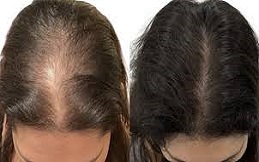
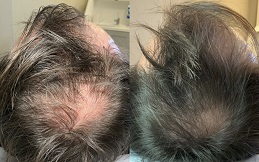
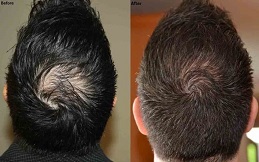


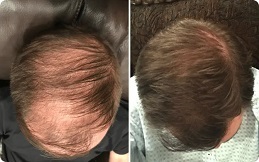
This therapy is superior to the others since it is less intrusive. Unlike other hair regeneration therapies, this one does not cause such negative effects.

Experience the Benefits: Unlock Your Hair’s Potential!
Here are a few basic positive aspects of the treatment:
| Non-Invasive | It is non-invasive and non-surgical, making it a safe technique with less recovery time. |
| Natural and Autologous: | Utilizing the patient’s own cells (autologous therapy) reduces the possibility of immunological responses or disease transmission. |
| Stimulates Hair Growth | It stimulates the growth of hair follicle cells, which results in the development of thicker, healthier hair. |
| Reduces Inflammation | Hair loss may be exacerbated by scalp inflammation. Exosomes’ anti-inflammatory qualities contribute to the improvement of the environment for hair follicles. |
| Safe and Well-Tolerated: | Exosomes produced from MSCs have demonstrated a high safety profile in several clinical investigations, making them safe and well-tolerated. |
Are You the Right Candidate?
The candidates who are perfect for this procedure are as follows:
- Mild to Moderate Hair Loss: People with mild to moderate thinning or hair loss are the best candidates.
- Healthy Scalp: Ideal candidates have healthy hair follicles on a scalp that is generally healthy.
- Realistic Expectations: Patients should have reasonable expectations for the course of their treatment.
- Good Health: Candidates should be in good general health and should not have any serious medical issues.
- Not Pregnant or Breastfeeding: Not advised for women who are pregnant or nursing.
- Smokers Are Preferable: Smokers might experience worse treatment outcomes.
Safety measures:
| Pre care instructiotns | Post care instructions |
|
|
Procedure for exosome Hair therapy:
Consultation: Make an appointment for a private consultation with one of our knowledgeable hair restoration professionals. We’ll evaluate your requirements and develop a treatment strategy that is unique to you. | Preparation: To prepare, the doctor cleans the hair and marks the area. | Exosome solution: Using cutting-edge methods, our specialists will gently massage the exosome solution into your scalp to promote maximum absorption. |
Post-Treatment:
After the session, the doctor recommends not to shower the hair. | Recovery and Follow-Up
| Sessions:
Multiple sessions are typically required, spaced 4-8 weeks apart, depending on the hair loss complexity. |
Exosome hair therapy cost in Islamabad:
The average cost of Exosomes Hair Therapy in Islamabad, Pakistan ranges between PKR 80,000 to PKR 1,70,000. However, if you want to learn the final price then you may consult our hair specialist.
Factors affecting the cost:
The cost can vary greatly depending on several variables, including
- The clinic’s location,
- The specialists’
- Level of experience,
- The degree of hair loss
- The number of sessions needed,
- Whether the exosomes used are autologous (derived from your body) or allogeneic (derived from donor sources).
Recovery Timeline:
| Time | What happens |
| Day 1–3 | Mild redness, swelling, or discomfort at the injection site. Avoid washing your hair for 24 hours. |
| Week 1 | Scalp irritation lessens; mild products can be used to restart your hair care regimen. |
| Weeks 2-4 | Early indications of decreased shedding and scalp regeneration. Some individuals report immediate improvements in hair texture. |
| Month 2-3 | New hair growth may become noticeable, with increasing thickness and density |
| Months 4–6 | Full results can be seen. |
Complications| Are There Any Side-Effects?
Exosome Hair Treatment has been associated with the following adverse effects most frequently:
- Mild Pain:
- Swelling and redness:
- Itching or Tingling:
- Bruising:
Immediately following the treatment, there may be some redness and swelling at the injection sites. However, this usually goes away in a short time.
Exosomes vs PRP for Hair Loss | Which one is best?
Hair loss treatments | |
|---|---|
| Exosomes | PRP |
| No blood draw | Need to draw the blood for separation of platelet-rich plasma |
| Does not include the centrifuge step | Includes centrifuge step |
| Includes nearly 300 growth factors. | Contains about 12 growth factors. |
| No preparation time | Takes 20-30 minutes for preparation |
| 5 minutes to administer | Takes half an hour |
| Source of solution: Human tissue | Source of solution: Human blood |
Book us now to get a Revolutionary Approach to Hair Restoration!
Are you prepared to accept the future of hair restoration’s future?
Schedule your consultation right away with Dynamic Clinic PK by filling out the form given below, and let us guide you toward renewed confidence and healthy hair with restorative treatment exosome for hair treatment in Islamabad.




